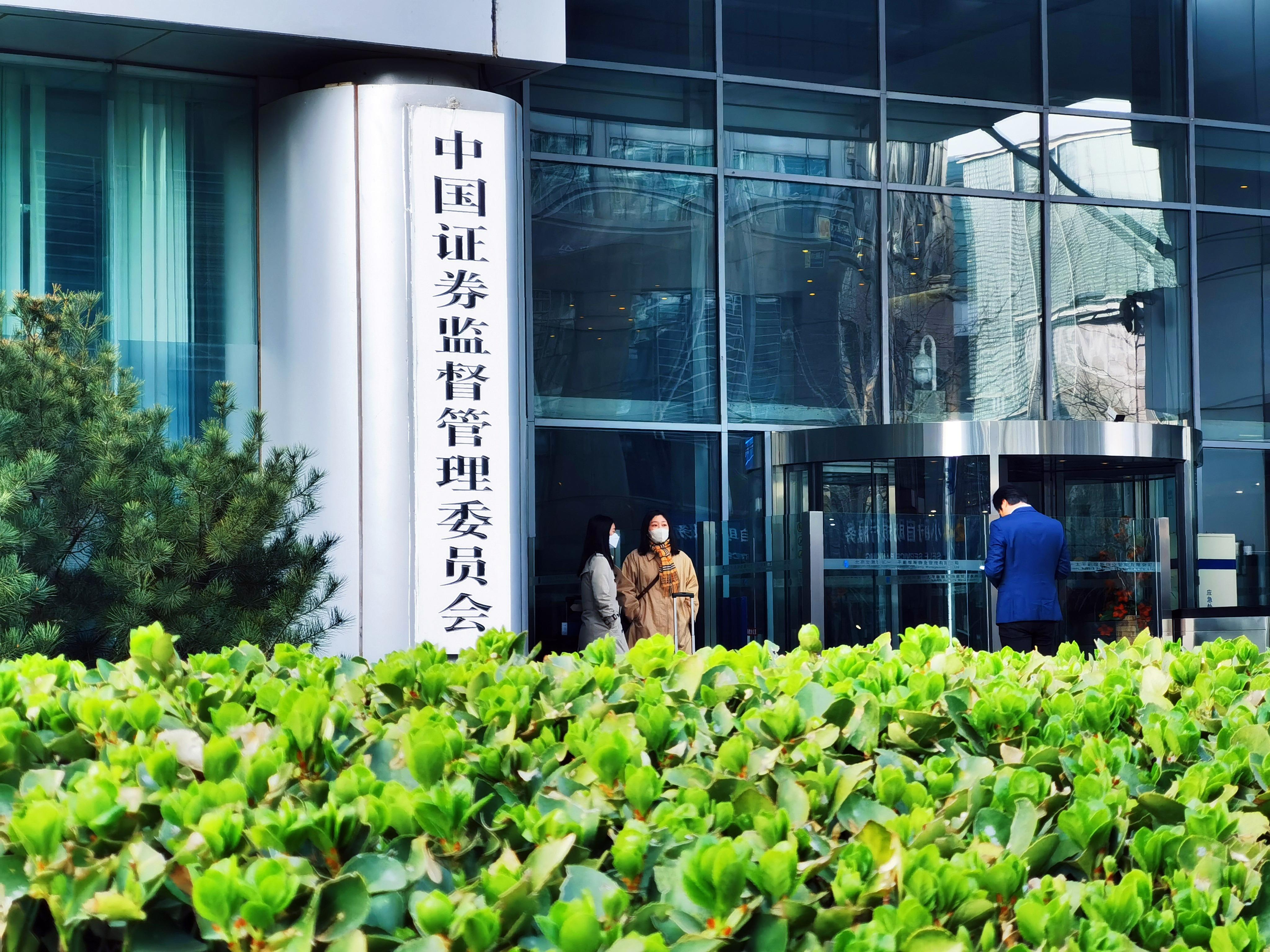Foreign capital flow into China despite uncertainties in overseas markets
 A view shows the China Securities Regulatory Commission in Beijing on March 10. (YU ZHIQIANG / FOR CHINA DAILY)
A view shows the China Securities Regulatory Commission in Beijing on March 10. (YU ZHIQIANG / FOR CHINA DAILY)
SHENZHEN — Global investors are bullish on renminbi-denominated assets as China's economic growth momentum recovers and its financial markets further open up, financial professionals said on the sidelines of the 2023 Global Investor Conference, which opened in Shenzhen, Guangdong province, on June 1.
International investors are optimistic about China's long-term structural growth prospects, Terry Pan, CEO for Greater China, Southeast Asia and South Korea at Invesco, told Xinhua at the conference.
Foreign capital has continued to flow into China's stock market this year, with a net influx of 170 billion yuan ($23.86 billion) through stock connect programs recorded in the first five months, according to Fang Xinghai, vice-chairman of the China Securities Regulatory Commission.
Foreign investor holdings on the ChiNext board, China's Nasdaq-style board of growth enterprises, surged more than 11-fold over the past five years, Fang said at the conference.
The two-day event attracted over 300 institutional investors, financial intermediaries and representatives of listed companies from home and abroad.
The country's fundamentals are strong in the long run and China has been contributing much to global growth, said Lyndon Chao, managing director at the Asia Securities Industry & Financial Markets Association.
Explaining the reasons for investing in renminbi assets, Chao said low correlation with other risky assets can help achieve risk diversification while capturing upside potentials.
Besides diversification benefits, Janet Perumal, senior managing director at Wellington Management Hong Kong Ltd, noted that combined with valuation, scale and liquidity, investors can find good opportunities, especially in sectors such as technology, industrial, materials and healthcare.
The stellar performance of tech firms last year caught investors' eyes, with high-tech manufacturing enterprises registering a combined revenue increase of 14.6 percent and an R&D intensity of 6.71 percent in 2022.
Investors participating in the conference have also spoken highly of the sound capital market mechanism, effective protection for investors' interests and stock listing appeal for quality enterprises.
China officially rolled out the across-the-board registration-based initial public offering system earlier this year. The rules involve simplifying listing requirements, optimizing registration procedures and improving the regulations on underwriting and major asset restructuring of listed firms.
Of milestone significance in the reform of China's capital market, the move will further strengthen global investors' confidence, Perumal said.
With the registration-based IPO system, China's A-share companies have increased to over 5,000 and their total capitalization is now more than 85 trillion yuan. Steadily growing markets of bonds, futures and derivatives provide global investors with diversified investment options.
Currently, China's capital market is the second-largest in the world, with the largest and most active investor group, according to Fang.
The country is also actively exploring ways to promote the two-way opening up of its capital market at a higher level, and striving to create an enabling environment that can facilitate market access of medium and long-term funds.
For example, recent years have witnessed the easing of quota management for qualified foreign institutional investors, the further expansion of the Shanghai-Hong Kong and Shenzhen-Hong Kong Stock Connect schemes and the Bond Connect program, as well as the newly launched Swap Connect scheme.
Overseas investors can now invest in China's capital market through more channels, said Russell Jacobsen, head of China access &strategic development and equities product at HSBC, who believes that China's financial opening-up will not waver, despite uncertainties and fluctuations in the global market.


